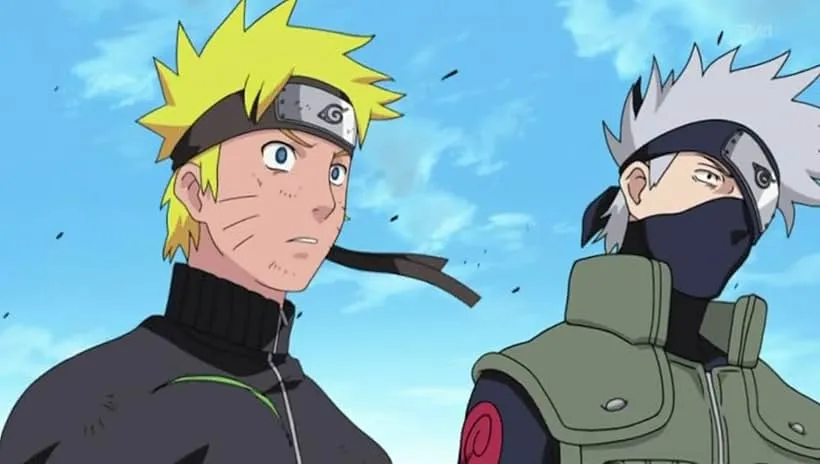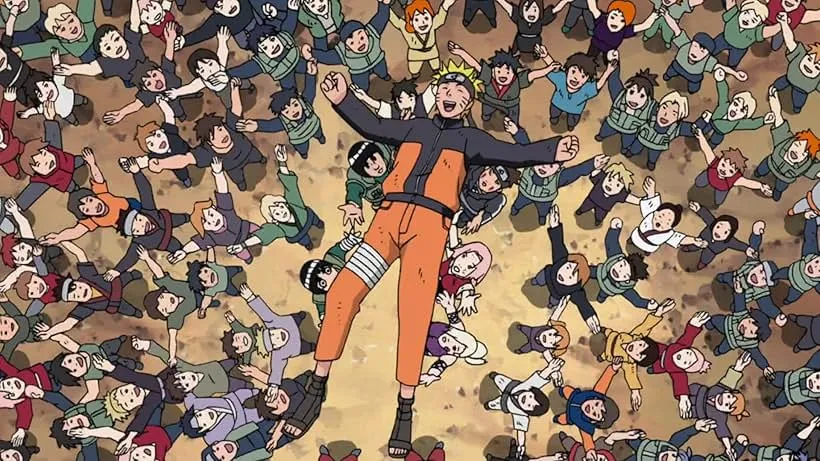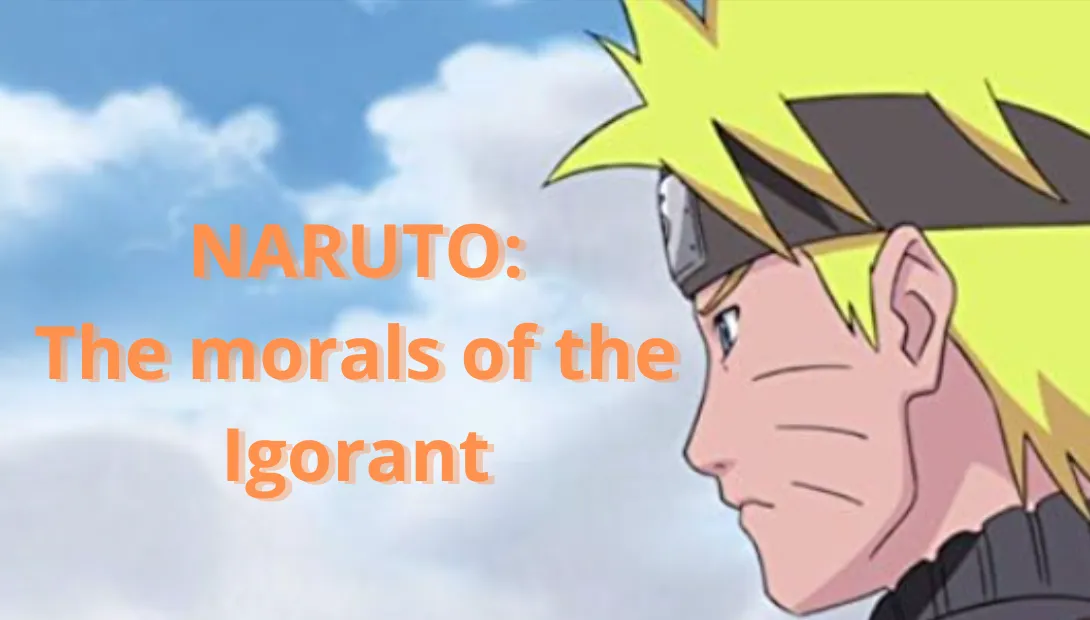español
La moral del igorante
A simple vista podemos notar que este personaje posee una personalidad tan marcada que se caracteriza por tener rasgos infantiles e irresponsables en la mayoría de las áreas de su vida, es impulsivo, despistado, inocente y obstinado. Naruto tiene una fuerte voluntad que en compañía de su nobleza y bondad podrían considerarse incluso patológicas puesto que la situación que sufrió en su niñez lo llevó a una dependencia emocional hacia cada persona que le dedicaba su atención principalmente a los miembros del equipo 7.
—¿Qué es la ignorancia?
La ignorancia es designada a la falta de conocimiento o información, tanto a nivel general como especifico, también es atribuida a la condición que poseen aquellos individuos del resultado de no haber recibido una buena educación. En la filosofía tenemos a Platón quien nos comunica que existe un solo bien, llamado conocimiento, y un solo mal, llamado ignorancia, en referencia a aquellos que se empeñan a permanecer en la ignorancia con respecto al conocimiento de las cosas del mundo. Por otra parte, Aristóteles apunta que el ignorante afirma mientras que el sabio duda y reflexiona.
Debido a la carencia de figuras paternales en su infancia, Naruto carece del conocimiento y las herramientas necesarias para desarrollarse correctamente en muchas aristas de su vida. Este mismo se sumió en su egoísmo y en la necesidad de que el resto de las personas vieran el mundo a través de sus ojos. Al mismo tiempo ignoraba el trasfondo de su propia existencia, siendo los casos más precisos las peleas de ideales con Neji Hyuga y la otra contra Pain, en la que ambos personajes tenían razón en su pensar. Naruto no solo reunía todas las condiciones para ser de la elite, sino que también estaba destinado a salvar el mundo como descendiente de Ashura. Por otro lado, tampoco pudo mantener la paz después del sacrificio de Nagato, luego de esta ser creada después de la guerra, puesto que se mantiene en pie gracia a la diferencia de poder de Konoha con respecto al resto de aldeas.
At first glance we can notice that this character has such a marked personality that is characterized by childish and irresponsible traits in most areas of his life, he is impulsive, absent-minded, innocent and stubborn. Naruto has a strong will that in company of his nobility and kindness could even be considered pathological since the situation he suffered in his childhood led him to an emotional dependence towards every person who devoted his attention mainly to the members of team 7.
-What is ignorance?
Ignorance is designated to the lack of knowledge or information, both at a general and specific level, it is also attributed to the condition that those individuals possess as a result of not having received a good education. In philosophy we have Plato who tells us that there is only one good, called knowledge, and only one evil, called ignorance, in reference to those who insist on remaining in ignorance with respect to the knowledge of the things of the world. On the other hand, Aristotle points out that the ignorant affirms while the wise doubts and reflects.
Due to the lack of father figures in his childhood, Naruto lacks the knowledge and the necessary tools to develop himself correctly in many aspects of his life. He himself became immersed in his selfishness and the need for others to see the world through his eyes. At the same time he ignored the background of his own existence, being the most precise cases the fights of ideals with Neji Hyuga and the other against Pain, in which both characters were right in their thinking. Naruto not only met all the conditions to be of the elite, but he was also destined to save the world as a descendant of Ashura. On the other hand, he also could not keep the peace after Nagato's sacrifice, after it was created after the war, since it is maintained thanks to the difference in Konoha's power with respect to the rest of the villages.

español
—La moral
Esta es una de las formas de la conciencia social, es el conjunto de reglas, normas de convivencia y/o conductas de los hombres. Los idealistas estiman que la moral es completamente independiente de las condiciones materiales de los individuos.
La virtud moral, según Aristóteles, es un hábito o facilidad adquirida por la repetición de actos para elegir y ejecutar el bien honesto consistente en el medio que se aparta de los extremos viciosos, siendo propio de la razón, informada y perfeccionada por la prudencia.
La moral de Naruto reúne las condiciones para categorizarlo como una buena persona, pero esto no significa que sea sabia o sana para sí mismo. Su necesidad de ser aceptado por la sociedad lo llevan a cometer las más grandes idioteces, creando relaciones toxicas con diversos personajes. Esto no solo sucede en la primera temporada con Sasuke y Sakura, sino que en la segunda temporada se extiende a otros personajes como Sai a quien rechaza sin conocerlo y no lo desea en su equipo, la falta de valor hacia su amistad con Shikamaru pero lo más importante a mi entender es su relación con Sasuke.
Gaara en la primera temporada nos muestra una moral extrema a la de Naruto convirtiéndose en dos caras de una misma moneda, siendo estos dos personajes viciados en razones contrarias. La famosa frase “yo antes era como tú” mirándola desde esta perspectiva es una mentira en ese momento ellos eran similares. Estas diferencias extremistas las podemos notar con la intervención de Kakashi ante los deseos de Sasuke a quien aconseja no intentar asesinar a su hermano, una persona tan débil mentalmente seria consumido por la venganza, por otra parte, se une al escuadrón liderado por Shikamaru quien tiene una moralidad sólida y una gran fortaleza mental.
-Morality
This is one of the forms of social consciousness, it is the set of rules, norms of coexistence and / or conduct of men. The idealists consider that morality is completely independent of the material conditions of individuals.
Moral virtue, according to Aristotle, is a habit or facility acquired by the repetition of acts to choose and execute the honest good, consisting of the means that moves away from vicious extremes, being proper of reason, informed and perfected by prudence.
Naruto's morality meets the conditions to categorize him as a good person, but this does not mean that he is wise or healthy for himself. His need to be accepted by society leads him to commit the greatest idiocies, creating toxic relationships with various characters. This not only happens in the first season with Sasuke and Sakura, but in the second season it extends to other characters like Sai whom he rejects without knowing him and does not want him in his team, the lack of courage towards his friendship with Shikamaru but the most important in my opinion is his relationship with Sasuke.
Gaara in the first season shows us an extreme moral to that of Naruto becoming two sides of the same coin, being these two characters flawed in opposite reasons. The famous phrase "I used to be like you" looking at it from this perspective is a lie at that time they were similar. We can notice these extreme differences with Kakashi's intervention before Sasuke's wishes to whom he advises not to try to assassinate his brother, a person so mentally weak would be consumed by revenge, on the other hand, he joins the squad led by Shikamaru who has a solid morality and a great mental strength.

español
—Naruto y la sociedad
La ignorancia nos lleva a ser manipulados y consumidos por la sociedad, creando una dependencia emocional hacia la aceptación de la misma. Las buenas acciones no siempre están acompañadas del bien que muchos esperamos, infinidad de ministerios públicos inútiles, propagandas políticas que solo se quedan en palabras o son utilizadas como contrapeso ante aberraciones contra la humanidad, propagandas de odio hacia diferentes sectores sociales como son el hombre blanco o las personas de mejor estatus económico.
Las acciones de Naruto no son producto de una buena moralidad o de sabias decisiones sino más bien de las personas que lo rodearon, sus excelentes maestros y los valores que mostraba su aldea de forma superficial lo dirigieron a esa mentalidad. Debido a las características psicológicas del personaje es muy manipulable, esto lo podemos ver en el primer episodio, no le importó robar o aprender un jutsu prohibido con tal de tener lo que deseaba, tampoco arrodillarse ante el raicage poniendo su vida en juego por un traidor genocida, incluso Kabuto juega con su inocencia. Esto no debe confundirse con el cambio que recibió Nagato que a pesar de ser catalogado como alguien que realizaba el mal no fue por intervención de un externo sino debido a un análisis exhaustivo de la situación de su mundo a través de los años, ya que la intervención de Obito solo sirvió para reforzar sus creencias y aumentar su poderío militar.
-Naruto and society
Ignorance leads us to be manipulated and consumed by society, creating an emotional dependence towards its acceptance. Good actions are not always accompanied by the good that many of us expect, countless useless public ministries, political propaganda that only remain in words or are used as a counterweight to aberrations against humanity, propaganda of hatred towards different social sectors such as the white man or people of higher economic status.
Naruto's actions are not the product of a good morality or wise decisions but rather of the people who surrounded him, his excellent teachers and the values that his village showed in a superficial way led him to that mentality. Due to the psychological characteristics of the character he is very manipulable, this we can see in the first episode, he did not mind stealing or learning a forbidden jutsu as long as he had what he wanted, neither kneeling before the raicage putting his life at stake for a genocidal traitor, even Kabuto plays with his innocence. This should not be confused with the change that Nagato received, which despite being labeled as someone who did evil was not due to the intervention of an external but due to a thorough analysis of the situation of his world over the years, since Obito's intervention only served to reinforce his beliefs and increase his military power.

español
—Conclusiones
Este personaje nos muestra como una persona que no tiene verdadero control sus pensamientos puede ser inducido de múltiples maneras a tomar el camino implantado por otros haciéndolos miserables a largo plazo eso lo podemos ver en su secuela. Cuando personas así llegan a lo más alto son los que están a su alrededor los que sufren su idiotez, casarse con una persona que no ama por compromiso social, darle más prioridad a tu trabajo que a tus hijos a pesar de que los obliga a sufrir algo parecido a lo que sufrió él, no tomar buenas decisiones como figura política ocupando un puesto al que deseo llegar, pero por las razones más egoístas y así muchos otros ejemplos.
-Conclusions
This character shows us how a person who has no real control over his thoughts can be induced in many ways to take the path set by others making them miserable in the long run, as we can see in the sequel. When people like this reach the top it is those around them who suffer from their idiocy, marrying a person they do not love because of social commitment, giving more priority to your work than to your children even though it forces them to suffer something similar to what he suffered, not making good decisions as a political figure occupying a position I wish to reach, but for the most selfish reasons and many other examples.

